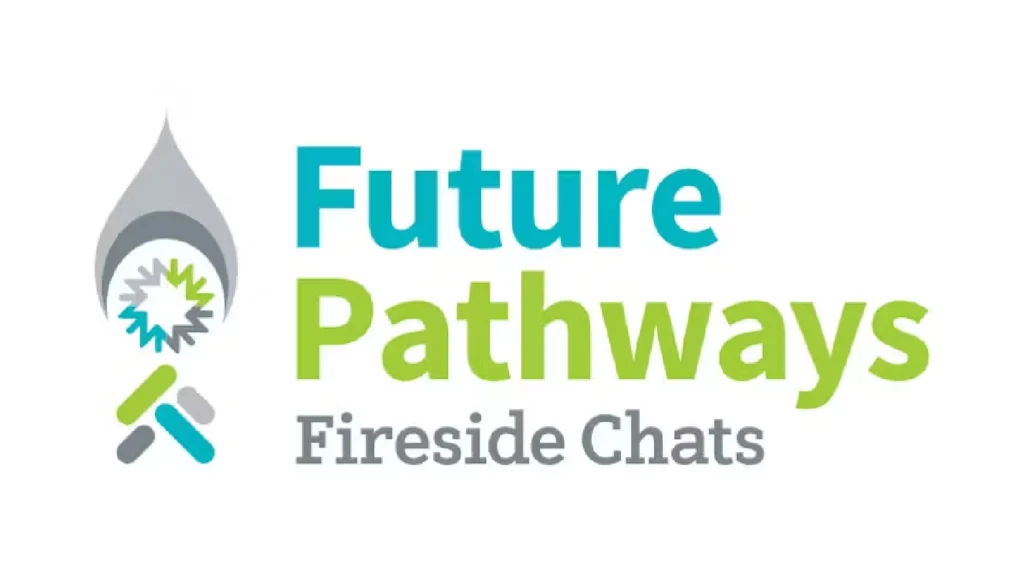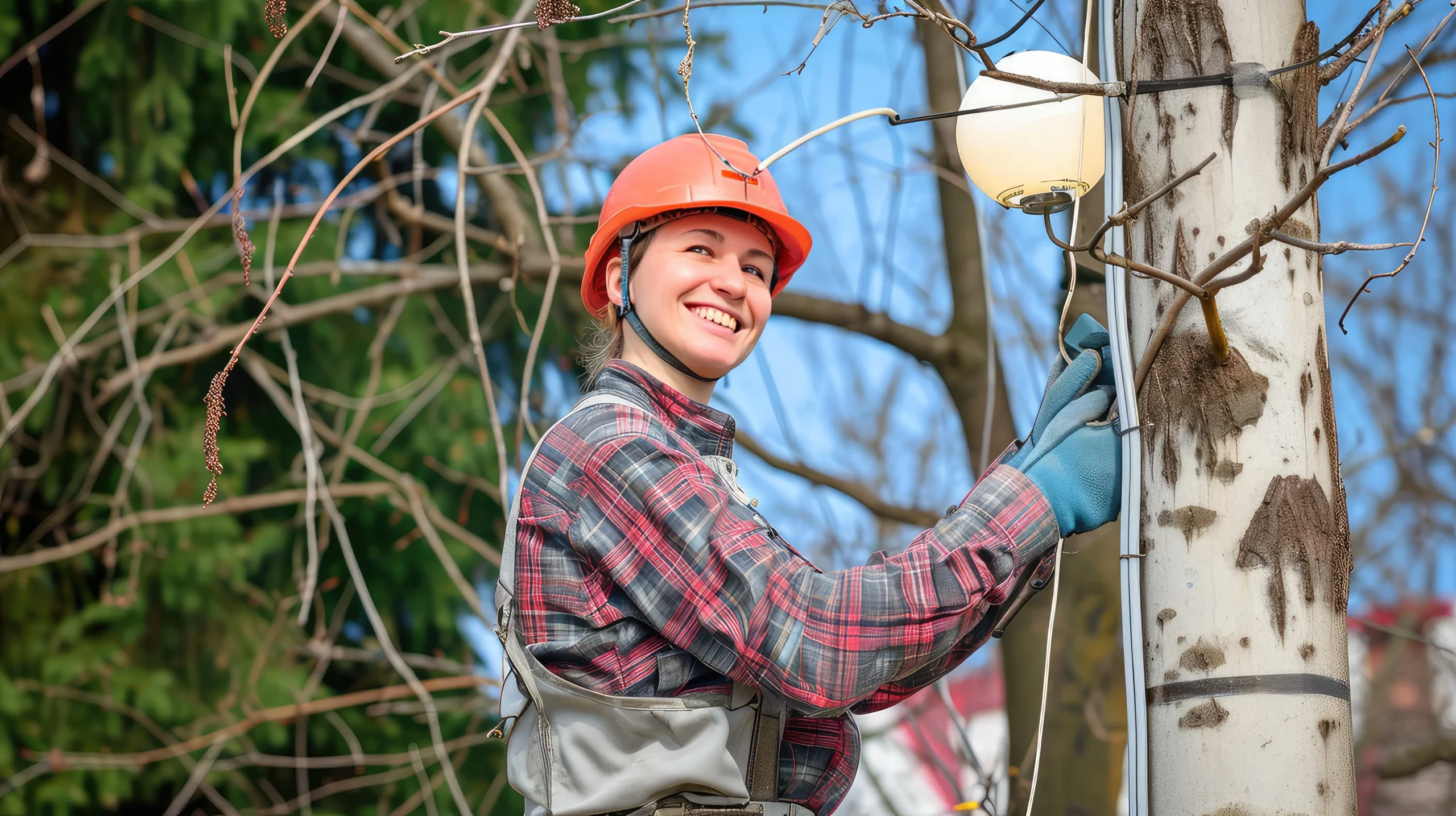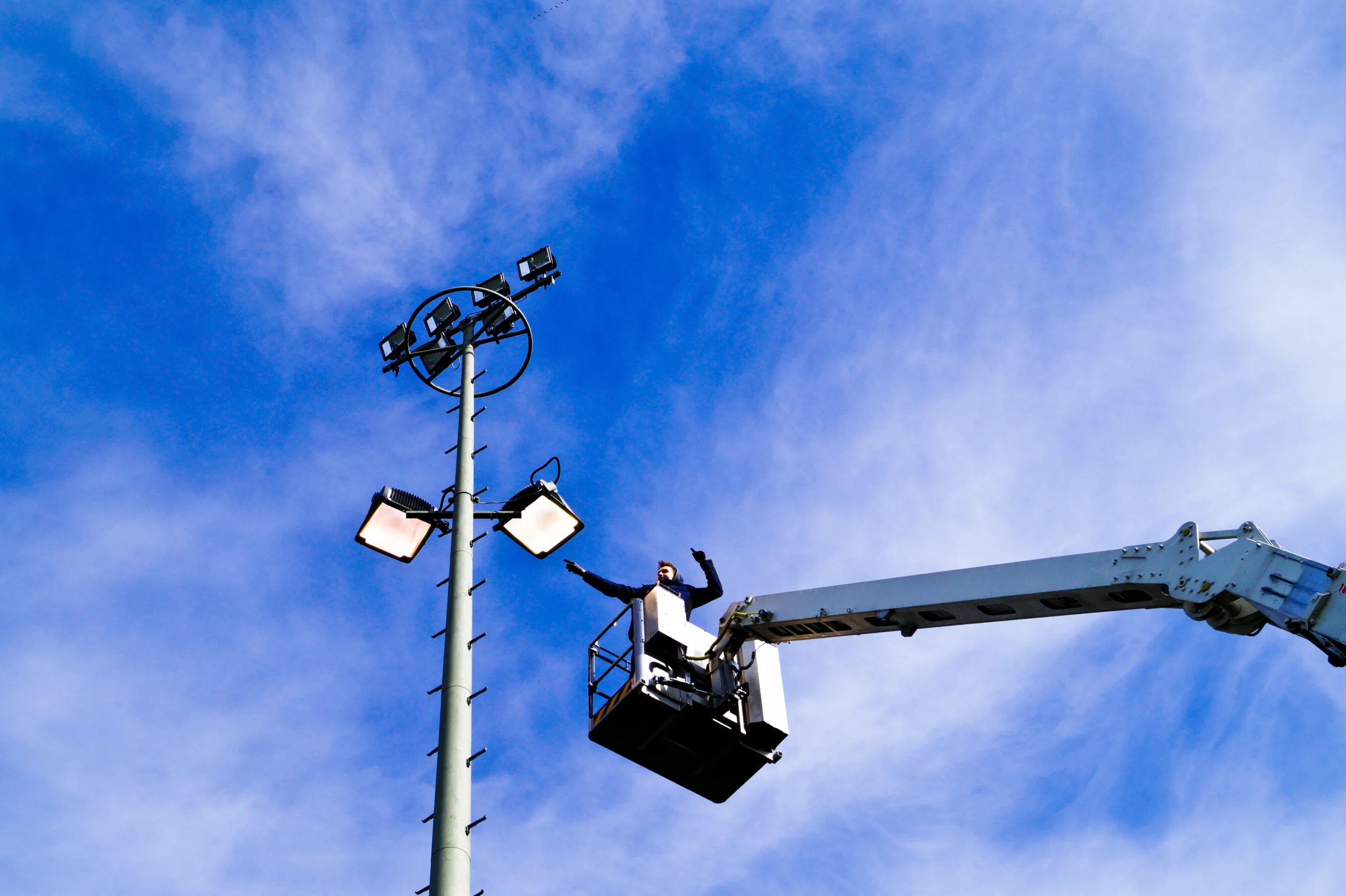Street Lighting & Power Line Engineer

Street Lighting & Power Line Engineer
Job Sector
Energy and Natural Resources
Potential Salary (USD)
Low End: $50,000.00 /yr
Avg/Med: $85,000.00 /yr
High End: $140,000.00 /yr
Education Required
- Bachelor’s Degree
- Professional Engineer license
Job Outlook
The demand for Street Lighting Engineers is expected to grow, driven by the need for energy-efficient electrical solutions.
Career Profile Overview
Street Lighting & Power Line Engineers design, implement, and maintain lighting systems that ensure the safety and efficiency of public spaces. They play a crucial role in urban planning and infrastructure development, working to optimize energy consumption, enhance visibility, and integrate smart technologies. This profession blends technical expertise in electrical engineering and lighting design with a commitment to public safety and sustainable urban environments.



Key Responsibilities
Street Lighting System Design and Planning
- Develop lighting designs and plans for new and existing street lighting installations, incorporating factors like road geometry, traffic flow, and pedestrian safety.
System Performance Analysis and Optimization
- Evaluate the performance of existing street lighting systems, conducting audits and identifying opportunities for energy savings and improved illumination.
Technology Selection and Implementation
- Select and specify appropriate lighting technologies, fixtures, and control systems (e.g., LED, smart lighting) based on project requirements, budget, and energy efficiency goals.
Project Management and Oversight
- Manage street lighting projects’ installation, commissioning, and maintenance, ensuring adherence to project timelines, budgets, and quality standards.
Regulatory Compliance and Standards Adherence
- Ensure that all designs, installations, and maintenance activities comply with relevant industry standards, codes, and regulations.
Energy Efficiency and Sustainability Initiatives
- Implement strategies to optimize energy consumption and reduce street lighting systems’ environmental impact, including using renewable energy sources and smart controls.
Troubleshooting and Maintenance Support
- Diagnose and resolve technical issues related to street lighting systems, providing timely repair services to ensure optimal performance and safety.
Educational Path
High School
- Courses in physics, math, and mechanical skills are beneficial.
Postsecondary
- Bachelor’s Degree in Electrical Engineering, Lighting Engineering, or a closely related field.
Advanced Degrees
- A master’s Degree in Electrical Engineering or a specialized field like Illumination Engineering may be required for advanced research or specialized roles.
Certifications
- Professional Engineer (PE) License
- Illuminating Engineering Society (IES) Certifications (e.g., Lighting Certified – LC)
- Project Management Professional (PMP)
Entry-Level
Street Lighting Technician
- Hands-on installation, maintenance, and repair of street lighting systems.
Junior Lighting Designer
- Assists senior designers in creating lighting plans, performing calculations, and drafting layouts for street lighting projects.
CAD Operator (Street Lighting)
- Creates and modifies technical drawings and schematics of street lighting systems using computer-aided design software.
Mid-Level
Street Lighting Engineer
- Designs, plans, and manages street lighting projects, ensures compliance with standards and specifications, and performs site inspections.
Lighting Project Manager
- Oversees street lighting projects, manages budgets and schedules, and coordinates with contractors and stakeholders.
Lighting Systems Analyst
- Analyzes existing street lighting systems for efficiency and performance, recommending improvements and implementing energy-saving measures.
Senior-Level
Senior Street Lighting Engineer
- Leads complex street lighting projects, provides technical expertise, and develops standards.
Principal Lighting Designer
- Develops lighting designs for large-scale urban projects, considering aesthetic, functional, and environmental factors.
Skills and Qualities
Core Technical Knowledge
- Proficiency in electrical engineering principles.
Software Proficiency
- Ability to utilize CAD and lighting simulation software (DIALux, AGi32, AutoCAD) to create and analyze lighting designs.
Troubleshooting & Optimization
- Capacity to diagnose and resolve complex technical issues related to street lighting systems, including troubleshooting electrical faults and optimizing system performance.
Project Management
- Ability to manage projects from conception to completion, including budgeting, scheduling, and resource allocation.
Regulatory Compliance
- Familiarity with relevant codes, standards, and regulations governing street lighting design and installation.
Communication
- Ability to communicate technical information clearly and effectively to diverse stakeholders, including clients, contractors, and government agencies.
Sustainability
- Understanding of sustainable lighting practices and a commitment to implementing energy-efficient solutions.
United States
Pennsylvania State University | Pennsylvania
- Program: Bachelor of Science in Electrical Engineering
- Website: Penn State Engineering
University of Colorado Boulder | Colorado
- Program: Bachelor of Science in Electrical and Computer Engineering
- Website: University of Colorado Boulder Electrical, Computer & Energy Engineering
University of California | California
- Program: Bachelor of Science in Electrical Engineering and Computer Sciences
- Website: UC Berkeley EECS
Canada
University of Toronto | Ontario
- Program: Bachelor of Applied Science in Electrical and Computer Engineering
- Website: U of T ECE
University of British Columbia | British Columbia
- Program: Bachelor of Applied Science in Electrical and Computer Engineering
- Website: UBC ECE
McGill University | Quebec
- Program: Bachelor of Engineering in Electrical Engineering
- Website: McGill ECE
Richard Giannini
Career Profile In Partnership with Connected North
The Future Pathways Fireside Chats feature Indigenous Role Models speaking about their careers and learning journeys.

Background
Richard is a Power Line Technician for NB Power. Richard is a journeyman in his field and learned about his trade by completing a competitive trades school certification.
He is from Saint Mary’s First Nation in Fredericton, New Brunswick, and now lives in Miramichi.
Learning Trades
As a young person, Richard was inspired by working in the woods with his dad. As he grew older, he valued the hands-on experience and on-the-job training offered by the trades, compared to university courses.
You can see your progress. There’s a visual representation of what you actually accomplish.
As a power line technician, Richard receives regular safety training and certified protective equipment. He especially loves the opportunity to be physically active while at work, and values the time he gets to be outdoors while on the job.
Whether he is installing a power line, investigating a customer concern, or fixing a broken pole, every day at work offers a new opportunity to apply his skills.
Advice to Young People
When considering leaving home to start a new career, Richard recommends that young people have a goal-oriented plan for their future.
As long as you see yourself progressing, then I feel like you’re going to get to where you want to be eventually.
Richard also recommends that young people considering the trades be open to trying a few industries, which will help them identify which they like the best.
Source
Future Pathways: Richard Giannini Fireside Chat



Resources and Further Reading
- American Job Outlooks: Electrical Engineering in the USA
- Canadian Job Outlooks: Lighting Design in Canada
